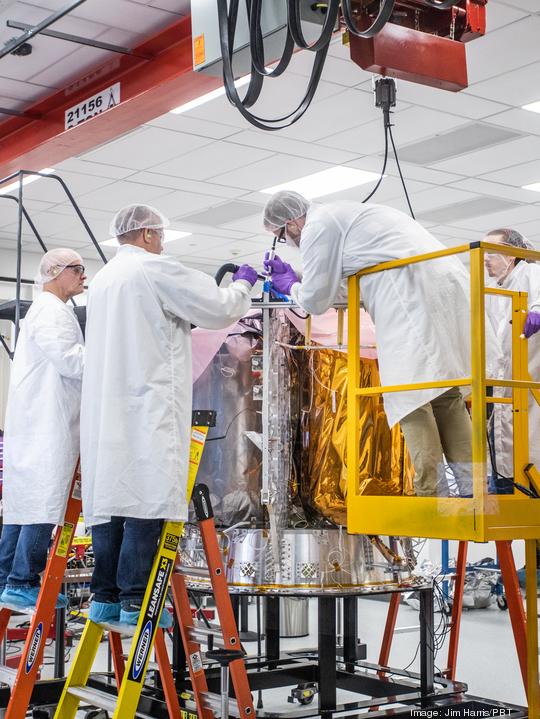
Pittsburgh-based Astrobotic Technology Inc. announced that its Peregrine lunar lander has successfully completed all of its various flight acceptance tests required to certify that it can survive a launch into space and an eventual touchdown on the moon.
"Peregrine Mission One’s (PM1) flight acceptance campaign was completed on schedule and exceeded expectations," Sharad Bhaskaran, Astrobotic’s PM1 mission director, said in a prepared statement. "These tests ultimately proved the quality of Peregrine’s design and workmanship over the full assembly and integration campaign. Everyone worked diligently, even through holidays, for this incredible achievement."
Astrobotic said it is now waiting for United Launch Alliance (ULA), the makers of the rocket that will transport Peregrine to outer space, to give it the ready-to-receive "green light" before Astrobotic can send Peregrine down to Cape Canaveral, Florida, for the launch, which is still tentatively scheduled to occur sometime this quarter.
In the interim, Peregrine will be housed where it was built: The North Side headquarters of Astrobotic, and it can be seen starting on Jan. 26 from inside the recently opened Moonshot Museum, which is also located within Astrobotic's headquarters. Astrobotic said it will keep Peregrine on-site in Pittsburgh until it gets that "green light" from ULA.
Meanwhile, ULA delivered its Vulcan Centaur rocket to the Cape Canaveral Space Force station on Monday, according to a report published in Space.com.
PM1 is Astrobotic's first lunar mission, which has been under development since 2017, and it’s also set to be the first commercial mission to the moon ever as part of NASA’s Commercial Lunar Payload Services initiative. The lander, which has solar panel power generation, is just over six feet tall by eight feet wide and is expected to have a payload weight of about 200 pounds. It’s made of aluminum and carbon fiber primarily, with navigation sensors, an avionics system, communications equipment and 24 payloads onboard as well.




